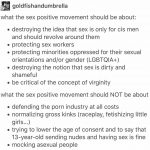A recent Gawker post argued that American slave women used sexual manipulation to get what they wanted, a comment so incendiary that it was quickly disavowed by the poster’s employers.
On The Root (via Racialicious), Dolen Perkins-Valdez, the author of Wench, “an exhaustively researched fictional account of the true story of the enslaved black women who visited an Ohio resort with their white masters,” comments on this scuffle.
TR: But Lizzie, one of the main characters, does love her master and specifically use sex to curry favors for her children and other slaves.
DPV: I think there was a lot of gray. Yes, surely women who were favored by the master used whatever little power they could gain from that favor. I think it is a little bit reckless to say that black women intentionally seduced masters. The power they gained was still so small. To call Lizzie a seductress, fooling Massa with her ‘good-good’ is not accurate. He seduced her when she was a 13-year-old orphan.
I want to emphasize that the actual institution of Atlantic slavery had little to do with the emerging idea of BDSM. Instead, it was a backdrop for older fantasies of the Romantics and the era of sensibility. Still, it does raise the question of sexual manipulation as an effective form of resistance by the subordinate. The ur-text of BDSM, Richardson’s Clarissa, isn’t just about rape. Lovelace’s rape of the drugged Clarissa is the end result of a very long, very complex interaction between the two, and even then it isn’t the true climax of the story. Even though Lovelace completely controls Clarissa’s physical environment, he can’t truly get inside her head, and Clarissa does make some successful resistance against him, but also feels attraction to him. Ultimately, she refuses him. It’s “ritual combat” between opposing characters, not just pure victim and pure villain.
In other words, it’s complicated.



